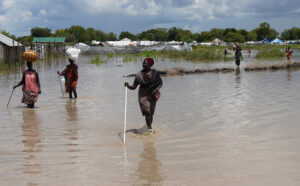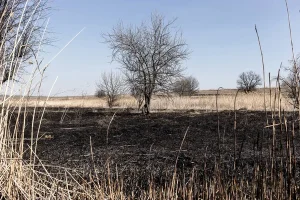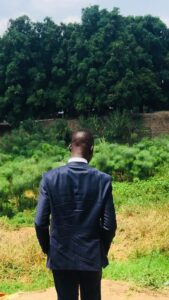Of Urban Management and Problems of Urban Growth in Juba City
Whether South Sudan’s capital is eventually relocated to Ramciel or not, Juba City requires proper urban planning and sustainable management to keep pace with problems of urban growth. Urban population growth is a pressing global problem, with the United Nations (UN) pointing out that only 30% of the human population lived in urban areas in 1950. This increased to 56.61% in 2021. UN estimates that by 2050, 68% of the world’s population will live in urban areas. While only 44% of Africa lives in urban areas, this is expected to increase to 90% by 2050. Juba is not an exception.
Since 2005, the population of Juba has quintupled, now estimated between 350,000-500,000. South Sudan Environmental Outlook 2018 put Juba city urban annual growth between 4.63_5%, partially fuelled by the availability of economic and employment opportunities, education, safety, and a high fertility rate (with 5 births per woman). This data should disturb any city resident. Juba city is poorly managed, necessitating an urgent need to plan human settlements, fix the environmental mess and enact necessary laws and policies for sound management of urban areas and cities for the whole country.
Despite the pressure of urban growth, human settlement in Juba remains poorly planned and developed. Between 2002 and 2012, Juba city increased five times its original size, expanding into Northern Bari and Rejaf payams. This expansion is characterised by informal settlement, an indication of poor urban planning. In fact, human settlements entered into Juba Game Reserve, a protected area of 200 square kilometres and the habitat of heuglin’s spurfowl and Arabian bustard. Of course, numerous factors beyond this blog piece are responsible for this unorganized human settlement. Yet, the sooner we confront these issues and order chaos out of current unorganized human settlements, the better for everyone_ the local community, government, individuals and civil society organizations.
Nothing demonstrates the urgency of fixing this unorganized human settlement in Juba than environmental problems arising out of urban growth. Much of Juba is gazetted for residential purposes. And even where recreational or protected spaces are designated, they have been effectively grabbed and turned into residential or commercial areas. Without designated areas for various activities, the street is the victim. A 2014 research documents that the city generates 666.7 tonnes of solid waste a day. Juba city council only collects 22% of the solid waste while private companies collect only 9%. The remaining solid waste is dumped in the river, streams or on the streets at night, with households responsible for randomly dumping 69% of the solid waste. The Ministry of Environment and Forestry even admits failure to deal with environmental problems associated with urban growth, “littering, mainly of plastic shopping bags and water bottles, is a pervasive and unesthetic environmental problem across South Sudan.” The foregoing indicates that the legal and policy infrastructure on solid waste management is not keeping pace with problems of urban growth.
A week ago, a researcher suggested that South Sudan should enact laws and policies on urban areas and cities. He argues that urban areas and cities, if any, in South Sudan urgently require a legal framework for classifying, governing and managing them. Admittedly, it is difficult to streamline principles of good governance, especially public participation of the residents of urban areas without posited law.
Yet, laws themselves are often ineffective if a problem is not first properly diagnosed and second policy options considered. This does not mean the law is irrelevant in solving such problems. But the law is effective only if a problem is compressively studied, negative implications considered, possible solutions (including non-legal options) explored, and how potential law would be implemented and enforced. For example, a December 2015 ban on the use of plastic carrier bags did not sweep plastic carrier bags off the streets of Juba. Until policy and lawmakers fully understand the magnitude of the problem and the options available to address it, the efficacy of laws and policies will often be uncertain.
The past decade has demonstrated the problems of urban growth in Juba City. From unorganized human settlement to the environmental mess, the question of how to better manage our urban areas and cities should be on the desk of every policy and law-makers_ including city residents. And now is the time to act.





It’s well articulated article my fellow researcher Mading Gum Mading.